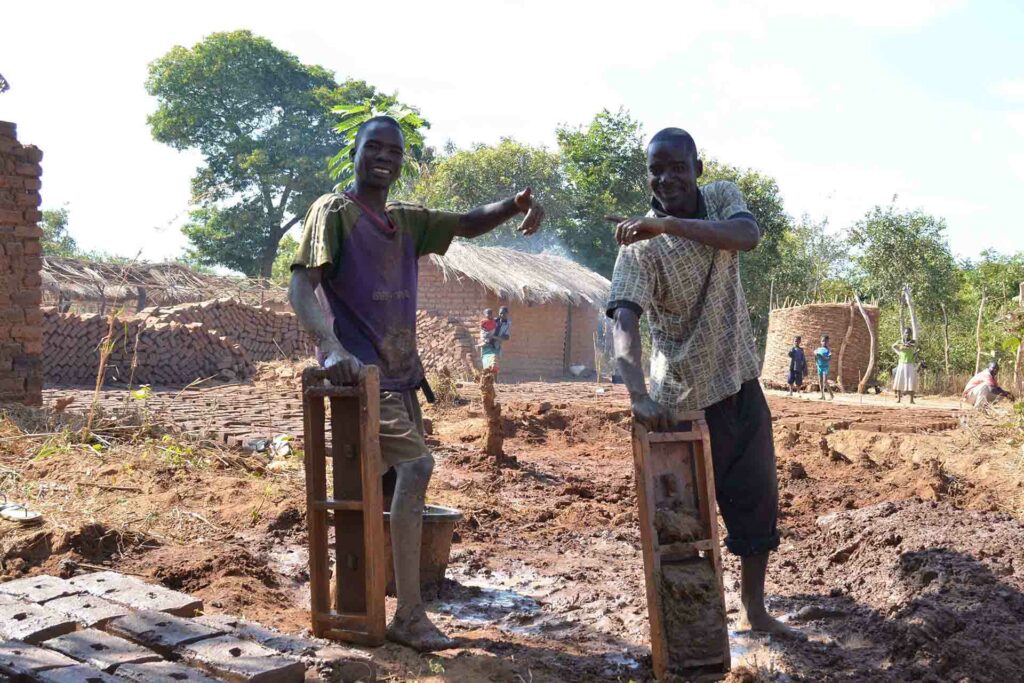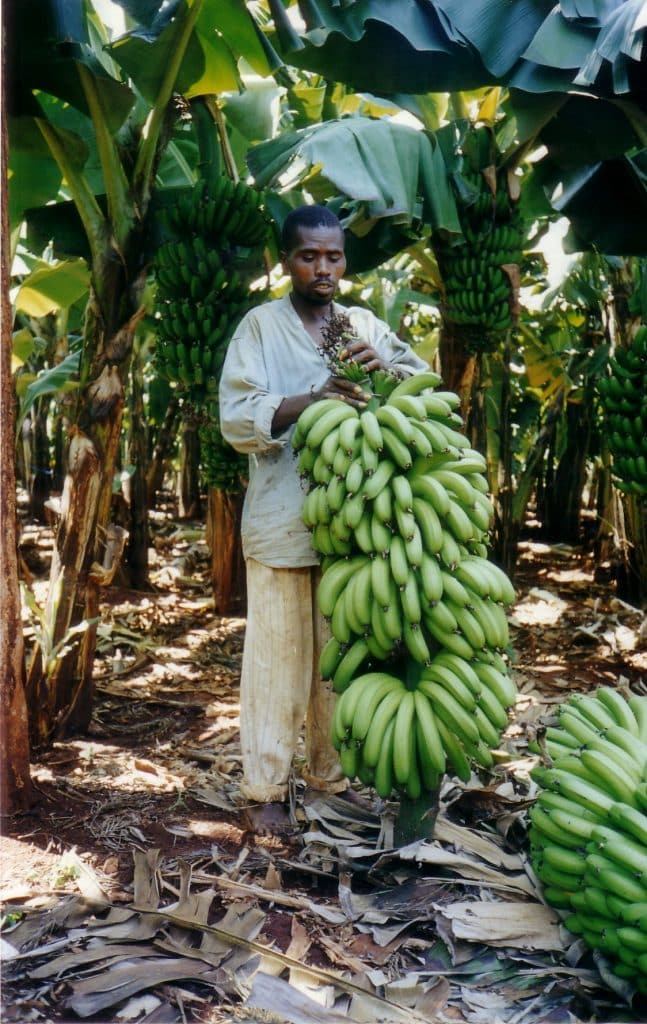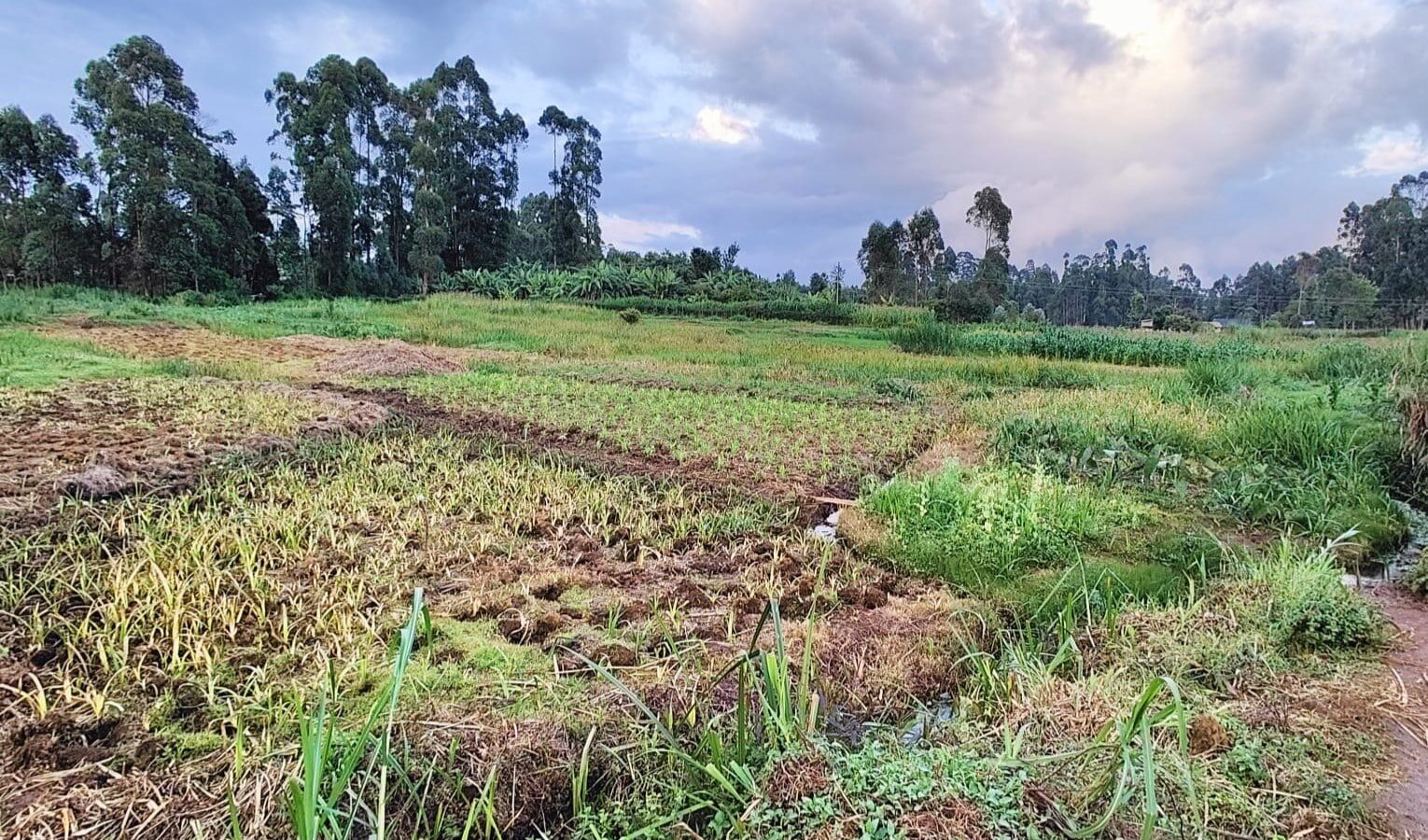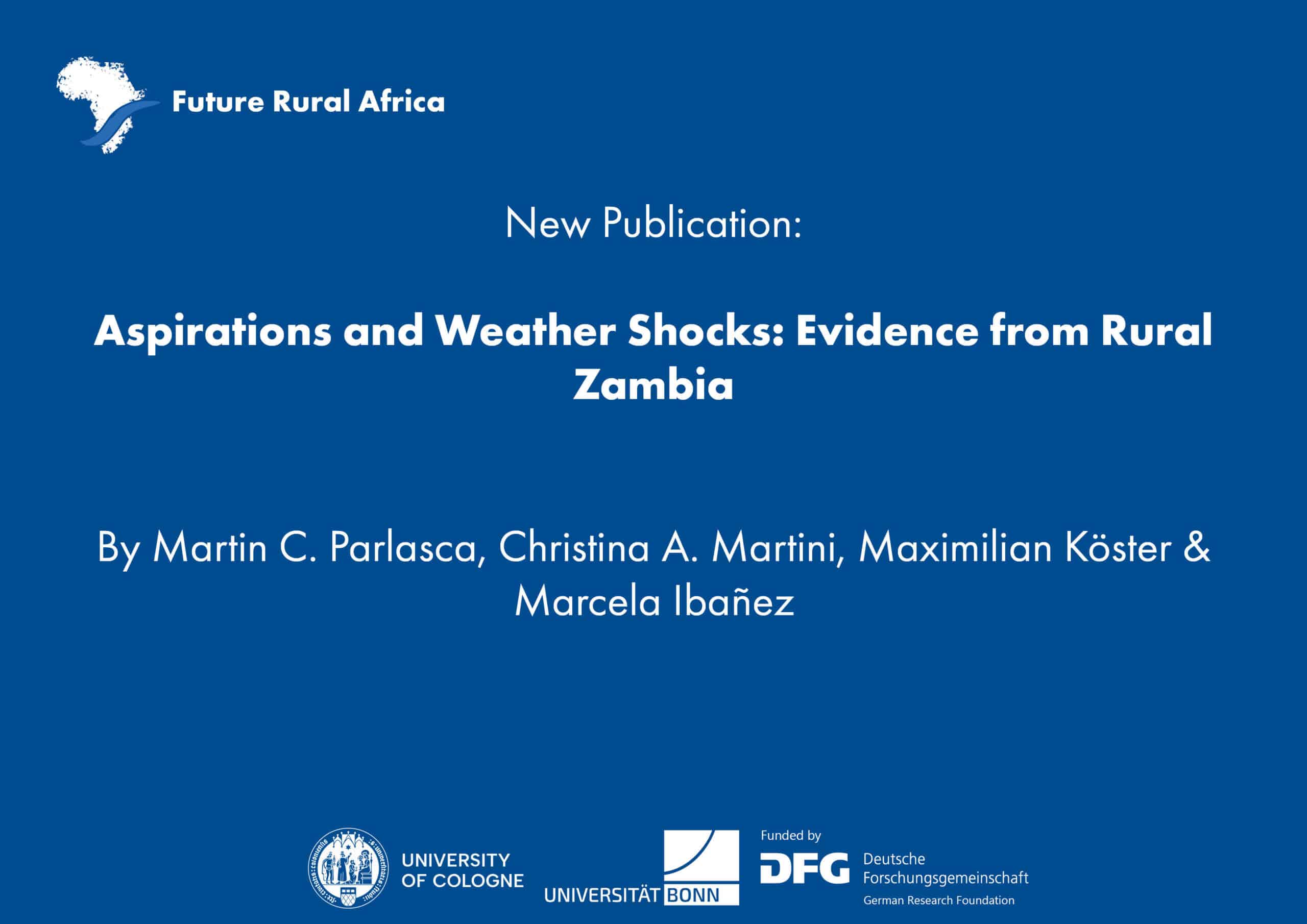CRC TRR 228 Project C08
Job Futures
Agriculture, rural transformation and employment
C08 Job Futures
Vision
Improved understanding of job futures under diverse conditions in rural Africa with a particular focus on linkages between agricultural transformation, infrastructuring, and equitable employment.
Project Summary
Households in rural Africa typically have diversified income sources. Beyond own farm production, many also work on other farms as agricultural laborers, have formal or informal employment in other sectors, or pursue self-employed business activities. With rapidly rising population numbers, the diversification of income and employment sources will likely continue in the coming years and decades. Sufficient generation of decent employment in various rural sectors could contribute to sustainable structural transformation and development, whereas inadequate job availability could perpetuate poverty and natural resource degradation. Hence, studying employment trends and the factors that influence current and future job availability, accessibility, and quality needs to be an integral element of “future-making” research in rural Africa. C08 collects and uses survey data from Kenya, Tanzania, Namibia, and Zambia, which can lead to important insights under diverse agroecological and socioeconomic conditions. Household- and individual-level data as well as employer data are collected through structured personal interviews. Statistical models are developed and estimated to analyse people’s access to different types of employment, determinants of participation, labour conditions, and effects on income, food security, gender roles, and inequality. Employment trends and their drivers are analysed with panel data. Results contribute to a better understanding of how sustainable job futures in diverse contexts of rural Africa may look like.
<span style="color:#2B71B5; font-weight:bold"Research Regions: Kenya, Tanzania, Namibia, Zambia
Problem Statement
Poverty in rural Africa is much higher than in most other parts of the world. The majority of households in rural Africa are involved in smallholder farming as their main source of livelihood. However, income sources are often diversified. Beyond own farm production, many also work on other farms as agricultural laborers, have formal or informal employment in other sectors, or pursue self-employed business activities. The diversification of income and employment sources in rural Africa will likely further increase in the future with population growth, climate change, and structural transformation. Hence, analysing current and future employment trends and their drivers needs to be an important element of “future-making” research in rural Africa.
Key Questions
- What income and employment sources do rural households and male and female individuals have, and how are these sources associated with economic and social welfare?
- To what extent are employment patterns associated with the use of specific agricultural technologies and innovations?
- What role do rural infrastructure and institutions play for employment?
- How do labour conditions compare in relevant rural sectors?
- What are conducive household-level and contextual conditions for sustainable job futures?
Key Findings from Phase II
In phase II, we examined structural shifts in rural employment across sub-Saharan Africa. Using household and employer data from Kenya, Namibia, Tanzania and Zambia, we show that off-farm work, especially self-employment, now accounts for a large share of rural incomes. Yet, decent wage jobs remain limited and labor conditions can be highly sector-dependent. We also show that access to electricity, particularly through off-grid systems, significantly enhances women’s labour market participation. At the same time, we also find that rural labour markets can be quite vulnerable to environmental shocks such as droughts. These findings point to the need for integrated rural development strategies that combine infrastructure investment, creation of decent jobs, and climate resilience.
Methodology
- Statistical analysis of survey data
- Regression models
- Semi-structured interviews with village officials and other key informants
- Analysis of employer survey data
- Policy synthesis
Relation to the CRC
C08 adds an important new component to the CRC, as this is the only project with an explicit focus on rural employment. Many of the issues analysed by other CRC projects – such as agricultural intensification (B05), environmental conservation (A04, C03), and infrastructure development (A05, C02) – will likely affect local employment trends, so close cooperation leads to synergies and better understanding of the broader development implications. In terms of data collection, C08 cooperates with Z03, implementing the household survey in Kenya, Tanzania, Namibia, and Zambia, and adding employment-relevant sections to the survey questionnaires.
Publications
Babatunde, R.O., Qaim, M., 2010. Impact of off-farm income on food security and nutrition in Nigeria. Food Policy 35: 303-311.
Chrisendo, D., Krishna, V.V., Siregar, H., Qaim, M., 2020. Land-use change, nutrition, and gender roles in Indonesian farm households. Forest Policy and Economics 118: 102245.
Daum, T., Baudron, F., Birner, R., Qaim, M., Grass, I. 2023. Addressing agricultural labour issues is key to biodiversity-smart farming. Biological Conservation, 284, 110165.
Debela, B.L., Gehrke, E., Qaim, M., 2021. Links between maternal employment and child nutrition in rural Tanzania. American Journal of Agricultural Economics 103: 812-830.
Ezebuihe, J.A., Parlasca, M., Qaim, M. 2024. Links between rural electrification and gendered off-farm employment in sub-Saharan Africa. ZEF Discussion Papers on Development Policy, 356, University of Bonn.
Guthoff, J., Mutsami, C., Parlasca, M., Heckelei, T., Qaim, M. 2024. Aspirations and livelihood diversification in rural Africa. ZEF Discussion Papers on Development Policy, 357, University of Bonn.
Jäckering, L., Meemken, E.M., Sellare, J., Qaim, M., 2021. Promoting written employment contracts: Evidence from a randomized awareness campaign. European Review of Agricultural Economics48: 1007-1030.
Meemken, E.M., Barrett, C.B., Michelson, H.C., Qaim, M., Reardon, T., Sellare, J., 2021. Sustainability standards in global agrifood supply chains. Nature Food 2: 758-765.
Meemken, E.M., Sellare, J., Kouame, C., Qaim, M., 2019. Effects of Fairtrade on the livelihoods of poor rural workers. Nature Sustainability 2: 635-642.
Mehraban, N., Kubitza, C., Alamsyah, Z., Qaim, M., 2021. Oil palm cultivation, household welfare, and exposure to economic risk in the Indonesian small farm sector. Journal of Agricultural Economics 72: 901-915.
Musungu, A. L., Kubik, Z., Qaim, M. 2024. Drought shocks and labour reallocation in rural Africa: evidence from Ethiopia. European Review of Agricultural Economics, 51, 1045-1068.
Mutsami, C., Parlasca, M., Qaim, M. 2024. The evolving role of farm and off-farm jobs in rural Africa. ZEF Discussion Papers on Development Policy, 348, University of Bonn.
Nguyen, TT., Qaim, M. 2025. Local and regional food production diversity are positively associated with household dietary diversity in rural Africa. Nature Food (2025). DOI
Nzira, J. E., Parlasca, M., Qaim, M. 2025. An inquiry into labor conditions across key rural sectors in Africa. ZEF-Discussion Papers on Development Policy, 358, University of Bonn
Parlasca, M. C., Martini, C. A., Köster, M., & Ibañez, M. 2024. Aspirations and weather shocks: Evidence from rural Zambia. Agricultural Economics, 1–15. DOI
Rao, E.J.O., Qaim, M., 2013. Supermarkets and agricultural labor demand in Kenya: A gendered perspective. Food Policy 38: 165-176.
Ruml, A., Qaim, M., 2021. New evidence regarding the effects of contract farming on agricultural labor use. Agricultural Economics 52: 51-66.
Subramanian, A., Qaim, M., 2010. The impact of Bt cotton on poor households in rural India. Journal of Development Studies 46: 295-311.













